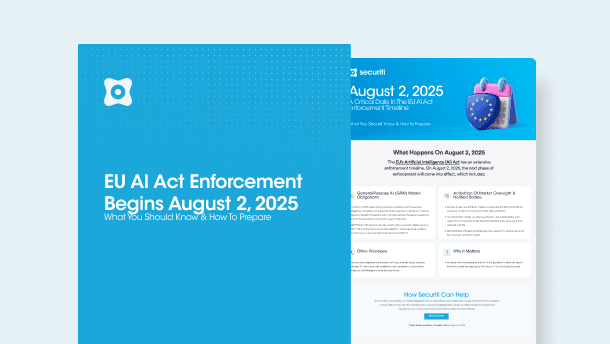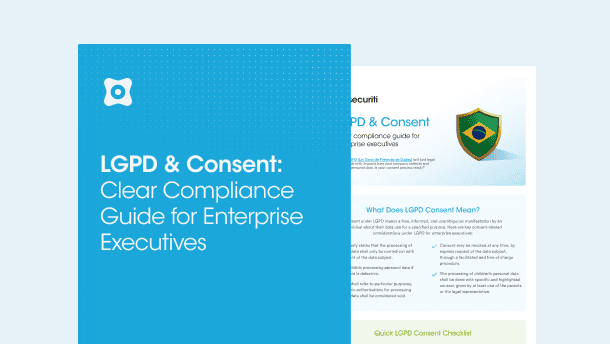Introduction
On May 28, 2025, Japan enacted a landmark legislation by approving the Bill on Promoting Research, Development and Utilization of Artificial Intelligence-related Technologies (AI Law). It reflects Japan’s commitment to promoting innovation and strengthening its position as a global leader in AI, while also addressing the societal risks and ethical concerns associated with its rapid advancement. Thus, the legislation aims to strike a balance between encouraging technological progress and ensuring the protection of fundamental rights, personal data, and public safety.
Read ahead to gain insights into the major obligations introduced under Japan’s new AI governance framework.
Key Definitions
To fully understand the AI law, it is imperative to understand its key terminology, as mentioned below:
- Artificial Intelligence-Related Technologies: Technologies that enable machines to perform tasks that typically require human intelligence, such as learning, reasoning, and decision-making.
- Utilizing Businesses: Any person who intends to develop or provide products or services that utilize artificial intelligence-related technology, or any other person who intends to utilize artificial intelligence-related technology in their business activities.
- AI Strategy Headquarters: A coordinating body led by the Prime Minister for overseeing national AI policy.
Basic Principles
The AI law is built on foundational principles that guide the responsible promotion, development, and use of artificial intelligence technologies (Basic Principles). These principles align with broader national strategies on science, technology, innovation, and digital society, ensuring AI contributes to both domestic progress and international cooperation. The Basic Principles include the following:
- promoting AI to maintain Japan’s research and development (R&D) capacity, enhance industrial competitiveness, improve administrative and business efficiency, and support national security;
- ensuring AI efforts are planned and integrated across all stages—from basic research to practical use—through collaboration among relevant stakeholders;
- ensuring transparency and proper management of AI development to prevent misuse such as criminal activity, data breaches, or intellectual property violations, and to safeguard people’s rights and safety; and
- advancing international cooperation by positioning Japan as a leader in the responsible development and use of AI for global peace and prosperity.
Obligations
Read the table to understand the main obligations under the AI law and the entities to which they apply:
Entity
|
Obligations
|
| National Government |
- Formulate and implement AI policies in a comprehensive and planned manner based on the Basic Principles.
- Actively use AI technologies within national agencies to enhance administrative efficiency and effectiveness.
|
| Local Governments |
- Formulate and implement AI policies that align with the Basic Principles and reflect their regional characteristics, in coordination with national government efforts.
|
| Research Institutions |
- Actively conduct and share AI research, foster specialized talent, and cooperate with national and local government initiatives.
- Respect for academic autonomy and promotes interdisciplinary collaboration across the humanities and sciences.
|
| Private Sector / Businesses |
- Promote responsible development and application of AI.
- Cooperate with government initiatives.
|
| Citizens |
- Gain awareness of AI-related technologies.
- Cooperate with government initiatives.
|
Enforcement
The AI law adopts a non-punitive ‘soft law’ approach, focusing on guidance and accountability rather than direct sanctions. Instead of imposing fines or penalties, the law enables investigations into significant violations, particularly those that affect citizens’ rights. Thus, the AI law relies heavily on voluntary compliance, public accountability, and government-issued guidelines, reflecting a preference for cooperative regulation over coercive enforcement. However, the absence of penalties can also be a drawback. Without enforcement mechanisms, there may be limited accountability for harmful or unethical AI practices. This could erode public trust and enable non-compliant actors to operate without consequence, potentially compromising individuals’ rights and safety.
While the AI law takes effect upon promulgation, certain key provisions will come into force on a later date to be specified by a government ordinance, within three months of its enactment.
Impact on Businesses
For businesses operating in Japan or offering AI services in the Japanese market, this law presents both an opportunity and a responsibility. Although it does not impose direct penalties, it introduces government oversight, voluntary compliance expectations, and reputational mechanisms, such as public disclosure of harmful practices. Businesses should take proactive steps to align their AI strategies with the government’s policy objectives and avoid scrutiny. They should:
- Review AI Systems: Identify any AI tools that may impact user rights or safety.
- Follow Government Guidelines: Align practices with Japan’s ethical AI principles.
- Set Up Internal AI Governance: Document decisions, assess risks, and ensure oversight.
- Prepare for Transparency: Be ready to explain how your AI works and why it's safe.
- Stay Informed: Monitor updates from Japan’s AI Strategy Headquarters.
How Securiti Can Help
Securiti is the pioneer of the Data + AI Command Center, a centralized platform that enables the safe use of data and GenAI. It provides unified data intelligence, controls and orchestration across hybrid multicloud environments. Large global enterprises rely on Securiti's Data Command Center for data security, privacy, governance, and compliance.
Securiti Gencore AI enables organisations to safely connect to hundreds of data systems while preserving data controls and governance as data flows into modern GenAI systems. It is powered by a unique knowledge graph that maintains granular contextual insights about data and AI systems.
Gencore AI provides robust controls throughout the AI system to align with corporate policies and entitlements, safeguard against malicious attacks and protect sensitive data. This enables organisations to comply with Japan’s AI Law.
Request a demo to learn more.








































